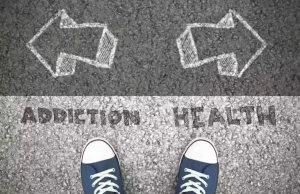
10 Tips to Help Family Members of Addicts Cope and Find Support

Ambiguous loss is a term that has been used to describe the experience of losing someone in an incomplete, not-quite-final manner (Boss, 2010). This type of loss can be distressing in that a person is physically present, but psychologically missing from the family or relational roles or, alternatively, psychologically loving an addict present but physically absent. The cognitive dissonance that results can be difficult to manage due to the feelings of ambiguity that surround the situation. Some signs of addiction are similar to normal teenage behavior, but teenagers are also one of the groups most vulnerable to addiction.
Lovingly Detaching from Someone with Substance Use Disorder
Do you think those people had a reason to feel shame because they asked for your help? Find 8 tips below for how to balance supporting the positive health behaviors of your partner, while also taking care of yourself. It can take time to trust a loved one again, especially if they’ve lied, exhibited harmful behaviors, or stolen from you.
- Withdrawal from such drugs as heroin, painkillers, alcohol, and benzodiazepine tranquilizers can be life-threatening, and medical supervision is generally advised.
- There is no real distinction between physical addiction and psychological addiction.
- These signs, similar to those of intoxication, exist in the absence of drinking.
- From that perspective, it is a sign of inability to cope with a stressor; behind the psychology of addiction is a sense of powerlessness, and it always a sign that better stress-management skills are needed.
Know the Difference Between Helping and Enabling
Or a person might start consuming alcohol before a social event, or even early in the day. People developing problem use might look for socially acceptable reasons to have a drink, or they might start concealing their alcohol consumption from others around them. According to DSM-5, widely used as a roadmap to diagnosis, it becomes a disorder when use eludes https://ecosoberhouse.com/ control and interferes with functioning. Substance use disorder is marked by a pattern of pathological behaviors related to use of the substance. There is a lot of sensationalism and misinformation around addiction, so it’s important to get your information from reliable sources. It’s not about possession or obsession, but about connection and growth.
How to Talk to Your Loved One About Their Addiction
There’s very little you can do, and you certainly can’t fix the person. Addiction is a complex disease, and there’s no amount of threatening or begging that’s going to eliminate the problem. Instead, one of the best things you can do when you love an addict is making sure you’re not enabling them.
This could manifest as an inability to stop yourself from contacting your partner, even when you know it’s not appropriate or healthy. You might find yourself making promises to cut back on your obsessive behaviors, only to break them repeatedly. It’s natural to feel conflicted, sad, or even guilty about the decision to detach from a loved one with substance use disorder. There are many reasons why you may feel it’s necessary to detach from someone with substance use disorder.

Addiction Treatment Programs
During this time, it’s important that you find a strong support system because you will need it. Often loved ones of an addict will participate in a group of other people whose loved ones are an addict. When you do that it can help you move forward in a positive, productive way, and also understand that you’re not alone.
Free daily group therapy sessions
In many cases, substance use starts as a way of self-medicating distressing feelings brought on by conditions such as depression, anxiety, or trauma. These co-occurring disorders, as they are called, are common, and when someone with addiction suffers from depression, anxiety, or insomnia, they are much more likely to relapse. About a third of people with a diagnosable mental health condition, and about half of those with a severe mental health condition, have some form of substance use disorder, research shows us. Support from family members and friends can be an integral part of a successful recovery. Contact us today if you have questions about family resources, the recovery process or personalized treatment options for addiction that could work well for your loved one.


This means treating the root cause rather than removing the addiction-like triggers entirely. Although “love addiction” is not formally recognized as a mental illness, some — but not all — neuroscientists and psychologists have said it can be just as powerful as other forms of addiction. Also, an Internet search for “love addiction support groups near me” may give you additional options for support. Here are a few possible treatments for love addiction that may support your recovery. Lara Dye, PhD, a clinical psychologist and addiction specialist in Austin, Texas, believes that love addiction belongs in the DSM-5.
Signs of Specific Addictions
In some cases, substance use may even make a person unsafe to be around. In other cases, you may simply feel that your involvement is doing more harm than good. Letting go of the need to be their savior may involve a grieving process, and it may be a good idea to seek support. But one of the most important steps in healthy detachment can be unapologetically putting your own safety and health first. Substance use disorders can be all-consuming, both for the person experiencing it and for those around them.
© 2021 Oak Tree. All rights reserved.


Comments are closed.